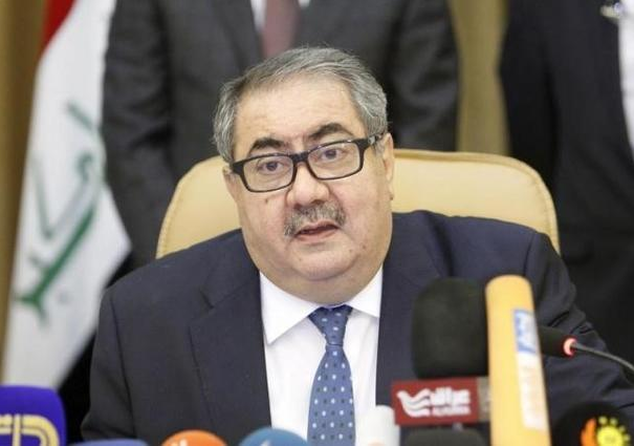Iraq has halted its plan to issue international bonds because the yield it would have to pay on the debt was too high, Deputy Finance Minister Fathil Nabi said on Sunday in a fresh blow to the country's efforts to finance itself.
Finance minister Hoshiyar Zebari "ordered that the bond be halted because the interest rate is high", Nabi told Reuters. He did not comment further and it was unclear when, if ever, the plan might be revived.
Iraq, which is battling an Islamist insurgency as well as shrinking oil revenues due to low crude prices, held a week of meetings with investors in Europe and the United States last month in an effort to attract interest in the planned issue.
The government, which has projected a fiscal deficit of about $25 billion this year in a budget of roughly $100 billion, said it needed the proceeds of the bond to pay salaries and fund infrastructure projects in the oil and gas, electricity and transportation sectors.
But investors demanded extremely high yields, which would have been financially burdensome for Iraq if it had agreed to pay them, sources familiar with the matter said.
Zebari told members of parliament's financial committee last week that "it was too difficult to accept paying an 11.5 percent yield in return for an $2 billion bond", the committee's secretary Ahmed Haji Rashid told Reuters.
Iraq hired three top global banks to arrange the sale, Citigroup, Deutsche Bank and JP Morgan Chase, but many institutional investors baulked at the risks.
Standard & Poor's assigned Iraq a B-minus credit rating last month, six notches below investment grade, saying security and institutional risks were among the highest of any sovereign it assesses, on a par with Egypt and above Greece.
"There was an expectations mismatch on the Iraq bond pricing. They are an oil exporter with ISIS in their backyard, and that weighed negatively on the bond sale, besides sluggish oil prices," said an official at a European investment firm.
It was not immediately clear how Iraq would cover its deficit without the hoped-for bond proceeds, although aid from international donors looks likely to bridge the gap for a while at least. The World Bank said in July it would provide Iraq with loans totaling $1.7 billion, while the International Monetary Fund agreed this year on an $833 million loan program.
Bank of America Merrill Lynch said in a report last month that a failure by Iraq to sell bonds might eventually persuade it to seek a bigger loan from the IMF.
View article here


 RSS Feed
RSS Feed